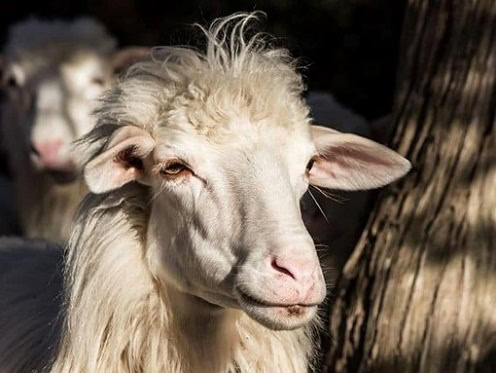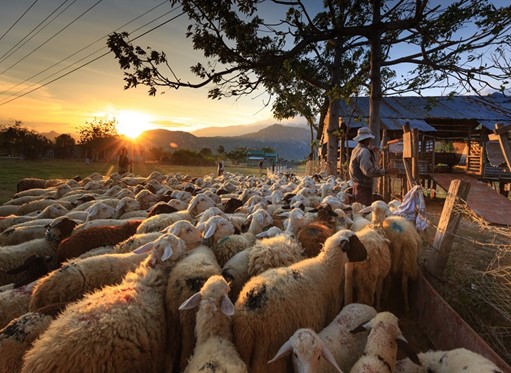In Europe and North Africa, up to 80% of sheep and goat wool is thrown away – that equates to millions of tons of valuable resources that are disposed of unused every year. The global market is dominated by 85% of wool from Merino sheep, which is imported from South America, New Zealand and Australia. These sheep are bred specifically for their fine, thin hair, which has a significant ecological impact: Forests are cut down to create grazing land, and the long transportation of the wool halfway around the world causes an enormous CO₂ footprint.
Sardinian wool offers a sustainable alternative. Although it is somewhat coarser, it comes from a centuries-old tradition of sheep farming in Europe. By returning to local wool production, this valuable material is now being appreciated again and saved from disposal. This promotes short transportation routes and the efficient use of resources, which contributes to a noticeable reduction in environmental pollution

